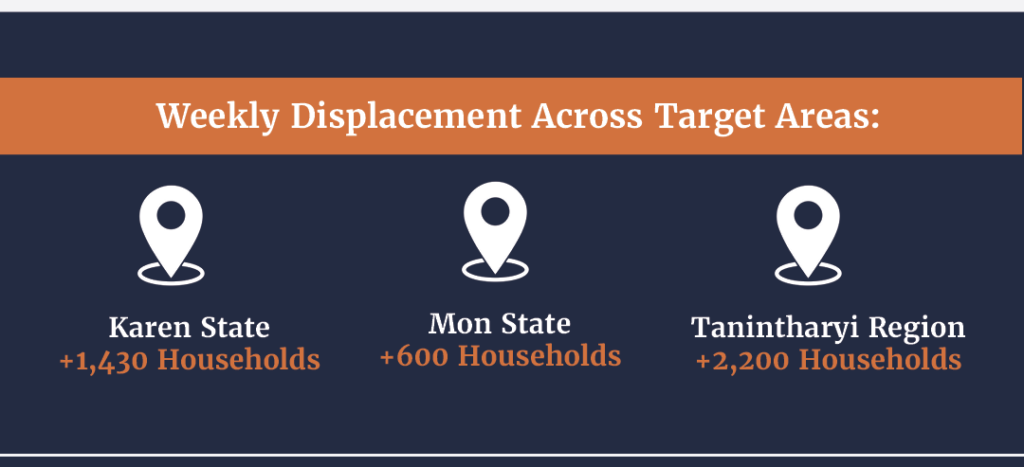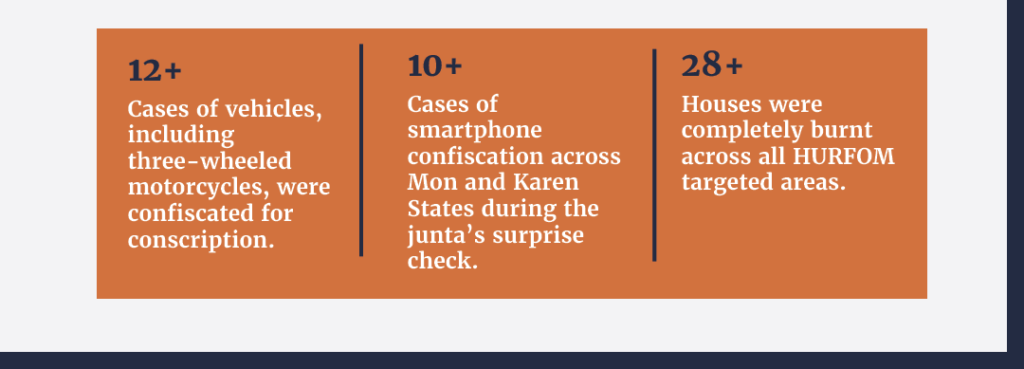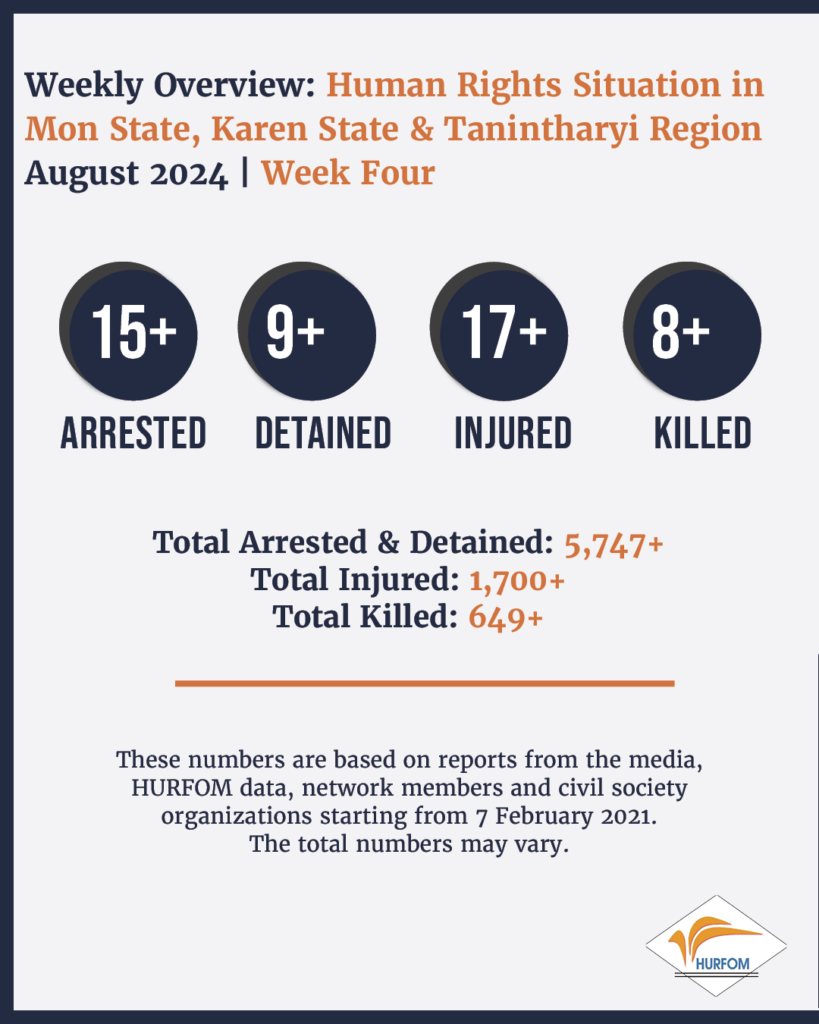Weekly Overview: Human Rights Situation in Mon State, Karen State and Tanintharyi Region
August 26, 2024
Junta Attacks Cause Communication Disruptions in Southeastern Burma
The Burmese military is continuing to target civilians in Southeastern Burma. As part of its notorious ‘four-cuts strategy’ in which the junta aims to cut off food, funds, recruits and information, there are widespread communication outages nationwide. Several townships lack reliable Internet or mobile connections in the Human Rights Foundation of Monland (HURFOM) target areas, including Mon State, Karen State, and the Tanintharyi region.
The military junta has been deliberately disrupting communication networks in these areas, severely impacting daily life. A villager from Kyone Ka Nyar in Ye Township reported that their village has been without a phone signal for an entire month, making it impossible to contact family members. Similar cutoffs have affected other villages in Southern Ye Township, including Mee Tie Dat, Mi Htaw Hlar Lay, Mi Htaw Hlar Gyi, Ma Gyi, and Ma Gyi Chaung Wa, since June 2024.
In Ma Gyi village, residents are unsure whether the lack of a signal is due to a fault at the telecom tower or intentional disruption, as there is no electricity at the tower. Even in areas where telecommunication is still available, frequent network disruptions have been reported, especially during the rainy season.
A resident from Ye shared that the internet connection becomes particularly unreliable during the rainy season, making it difficult to communicate even within short distances.
Intense battles between the military junta and resistance forces in Northern Ye Township have led to further intentional cutoffs by the junta to prevent the flow of information.
Similarly, a villager from Long Lone noted that although they use the Ooredoo network and connect through a virtual private network (VPN), the internet speed is so slow that accessing news and updates on social media is nearly impossible.
According to a report by the Myanmar Internet Project on July 16th, the military junta has carried out 275 telecommunication cutoffs since the attempted coup. Mon State is the third most affected region, with 2.85% of telecommunication services being disrupted.
In mid-July, the military regime in Burma prohibited the popular messaging app Signal. Signal is widely favoured for its robust end-to-end encryption, which ensures the utmost privacy. It is a go-to choice for activists, NGOs, and human rights advocates in Burma to conduct their work securely and does not require a virtual private network to connect. The junta began restricting its use on July 15, accusing users of communicating with resistance groups.

Immediately after the failed coup, the Burmese Army restricted access to Facebook to hinder organizing efforts, emphasizing the ongoing challenges for the people in Burma.

Civilians continuously encounter threats to their safety in online and offline spaces. The military regime promotes and enforces a dystopian environment characterized by extensive surveillance and frequent violations of privacy rights.




















































